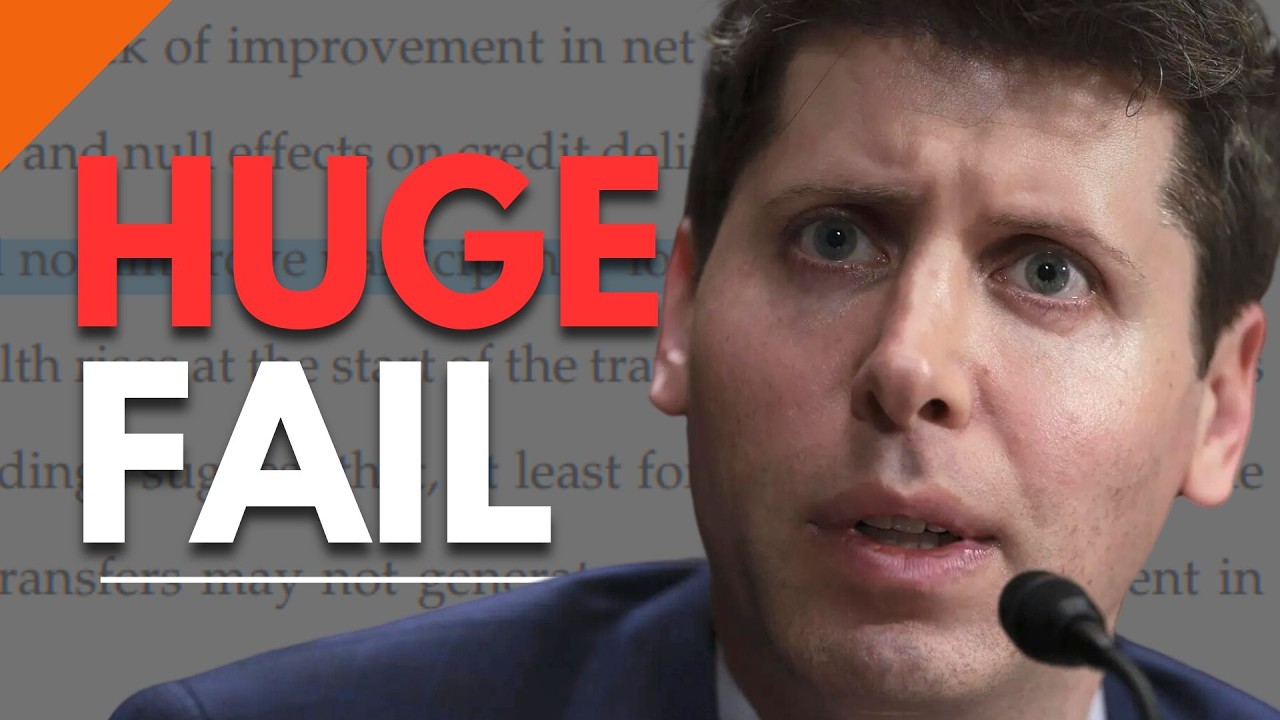The video critiques a recent study on Universal Basic Income (UBI) that found participants receiving UBI earned less and had lower net worth compared to a control group, challenging the belief that UBI helps lift individuals out of poverty. The host emphasizes the need for further research and suggests that the implementation of UBI, particularly the payment structure, should be reevaluated to potentially improve its effectiveness.
The video discusses a recent study on Universal Basic Income (UBI) that concluded UBI may actually make people poorer, contrary to the common belief that it helps lift individuals out of poverty. The host explains the concept of UBI, which involves providing cash payments to individuals to help them cover basic needs, thereby allowing them to invest in their long-term earning potential. Historically, UBI has been supported by various economists and politicians, with evidence from trials in developing countries showing positive outcomes. However, the host expresses skepticism about the applicability of these findings to more developed economies like the United States.
The study in question involved 3,000 families in Texas and Illinois, with 1,000 participants receiving $1,000 per month for three years, while the control group received only $50 per month. The results revealed that those receiving UBI earned, on average, $1,500 less than the control group, primarily because they worked fewer hours and spent more time on leisure activities rather than investing in education or skills development. This finding challenges the core argument for UBI, which is that it should enable individuals to improve their human capital and long-term earning potential.
Additionally, the study found that participants receiving UBI had a lower net worth compared to those in the control group, which is particularly concerning given the importance of wealth for long-term financial security. The host emphasizes that wealth inequality poses a significant threat to economic stability, and the expectation that UBI would improve participants’ financial resilience was not met. Instead, the findings suggested that UBI did not enhance participants’ ability to absorb financial shocks, which is a critical aspect of escaping poverty.
The host critiques the media’s portrayal of the study, arguing that many outlets focused on secondary outcomes, such as increased dental visits, rather than the more significant finding that UBI participants ended up poorer. The host points out that the researchers, affiliated with OpenAI’s Sam Altman, may have motivations to present UBI in a favorable light, especially given the potential impact of AI on future employment and the economy. This raises questions about the integrity of the research and the motivations behind its promotion.
In conclusion, the host expresses skepticism about the claims made in the media regarding UBI and encourages viewers to critically evaluate research findings and consider the motivations of those conducting the studies. While the study’s results may not completely discredit UBI, they highlight the need for further research and a reevaluation of how UBI is implemented, particularly in terms of payment structure. The host suggests that lump-sum payments might be more effective than monthly distributions, as they could enable individuals to make significant investments that improve their economic situation.
